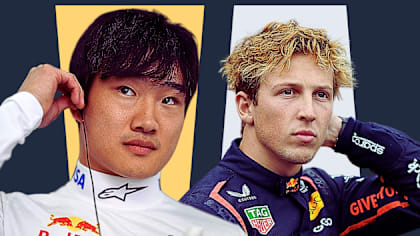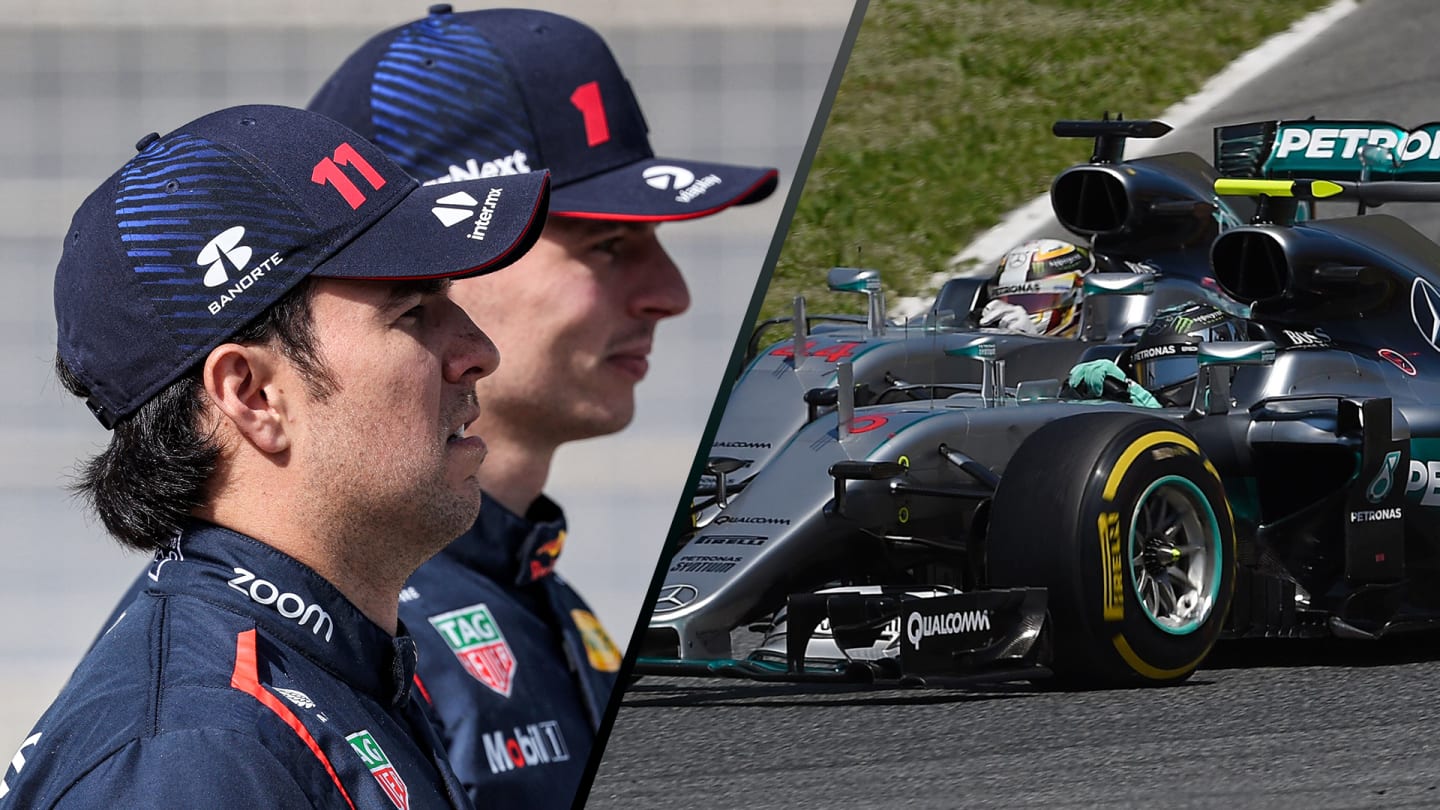
Feature
Mind games, cycling bans and more – Can Perez learn anything from when Rosberg beat Hamilton?

Share

Sergio Perez is preparing to enter his fourth season as Max Verstappen’s team mate at Red Bull in 2024, the same point Nico Rosberg reached when he finally managed to topple Lewis Hamilton with a particularly determined effort through the 2016 campaign. As the new term approaches, we ponder whether there are any lessons the Mexican can learn from that infamous Mercedes intra-team battle…
Perez gets set for a big year
Perez undoubtedly has one of the most difficult jobs in F1 as Verstappen’s team mate.
While he’s been driving the best cars of his career over the last three years, the driver on the other side of the garage – widely regarded as one of the greatest the sport has ever seen – has shifted the benchmark to a whole new level.
That said, after bedding in through 2021 and 2022, which brought a trio of victories, plenty more podiums and a maiden pole position, Perez showed signs early in the 2023 season of potentially being ready to take the fight to his team mate.
Indeed, two victories across the first four races – including a Grand Prix and Sprint double in Azerbaijan, where Perez held his nerve in a tense encounter – meant he was just six points behind Verstappen in the drivers’ standings.
2023 Azerbaijan Grand Prix: Sergio Perez crosses the line in Baku to take his second victory of the season
But then came Miami. While on paper it was a solid P2 finish behind Verstappen, he had in team boss Christian Horner’s words been dealt a “big psychological blow” – given the Dutchman’s fightback from ninth on the grid after he was unable to set a lap time in Q3.
What followed was a complete collapse as Perez endured a run of five successive events without an appearance in the final phase of qualifying, including a Q1 exit in Monaco that gave rival teams the bonus of a closer look at the RB19’s intricate floor design.
END OF YEAR REPORT: Dominance from start to finish as Red Bull and Verstappen hit new heights
While Perez righted some of those wrongs to eventually secure the runner-up spot in the championship, his average grid slot of 10.4 from Monaco to Abu Dhabi compared to 2.4 for Verstappen, and he had no wins to his team mate’s return of 16.
Come the end of the year, Perez reflected: “Obviously we started really strongly the year, then we had a bit of a rollercoaster mid-season. But we didn’t give up, we stuck together as a team, and I want to thank my whole team for supporting me.
“We went through very tough times, but we managed to secure the best season in the history of our team [with the constructors’ title and one-two in the drivers’ championship] and we’ve learned from those difficult moments, [so] we will come back stronger.”
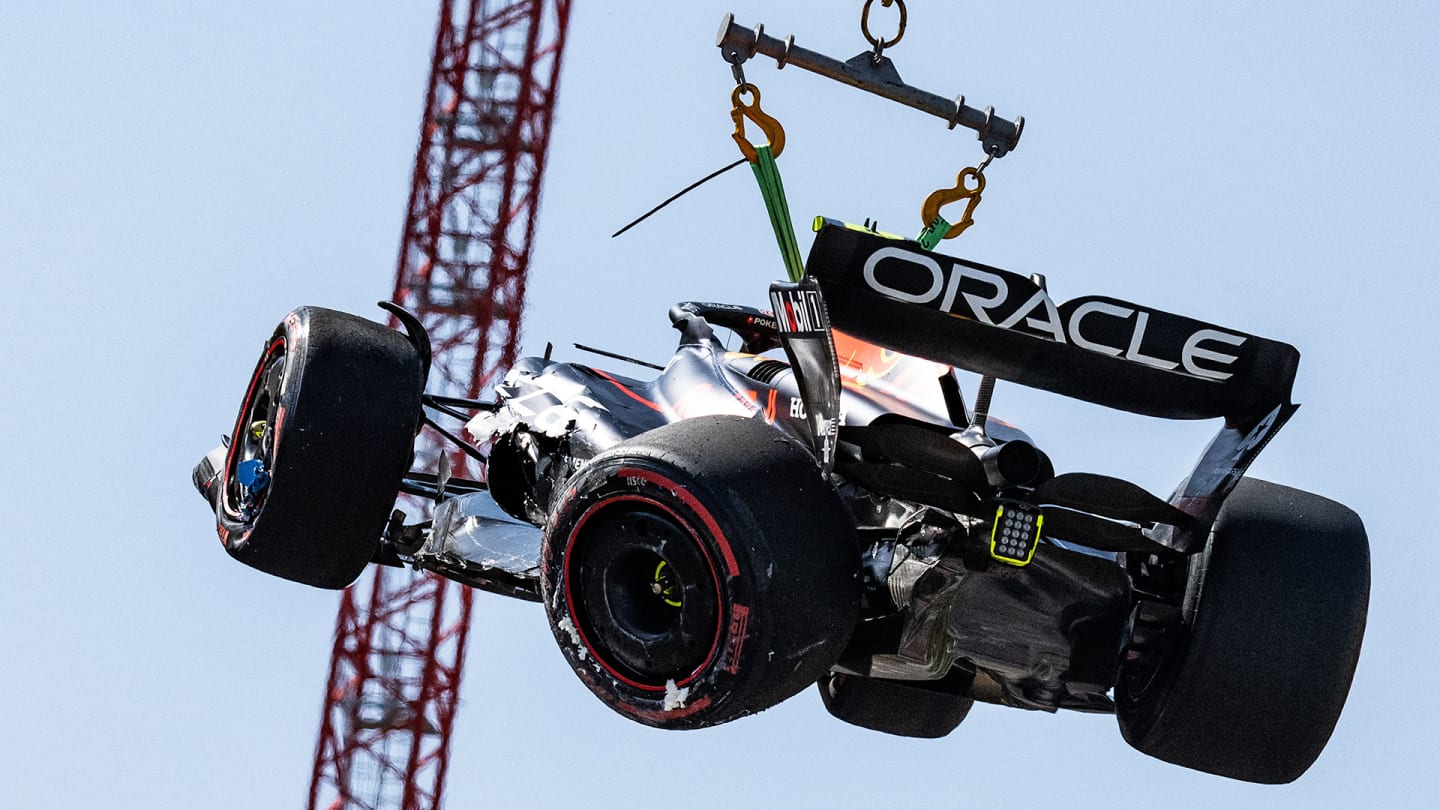
After a strong start to the 2023 season, Perez’s challenge was derailed by a disastrous qualifying run
When Rosberg faced Hamilton
But beyond improving his qualifying form – Horner stressing that “we know he can race and he’s got great pace, but we need him to be starting further up the grid” – and feeling more at one with Red Bull’s new challenger, are there any lessons Perez can learn from the past?
While we are dealing with a different era, two different drivers and a different team environment, not to mention much smaller gaps in the drivers’ standings than Verstappen’s record winning margin over Perez last year, Rosberg faced a broadly similar challenge for the 2016 season in that he had been repeatedly beaten by Hamilton in 2013, 2014 and 2015.
READ MORE: ‘He knows it’s a big year’ – Horner picks out what Perez needs to improve on for 2024
Speaking in an appearance on Beyond The Grid after his retirement, Rosberg went in-depth regarding how he managed to get on terms with Hamilton, hit this higher level on a consistent basis and eventually overhaul him – starting out by observing every element of what his team mate and main rival was doing on and off the track.
After their well-documented stint as team mates in karting, Rosberg admitted that “there were some different aspects that came into it” when he linked up with Hamilton again in F1, “like his strength in the media and team internally”.
“Karting is just about pure driving and in F1 you can add so much more to it,” Rosberg continued. “You can add so much performance with dedication, approach, marginal gains... I think that’s why I really did manage to become stronger.”
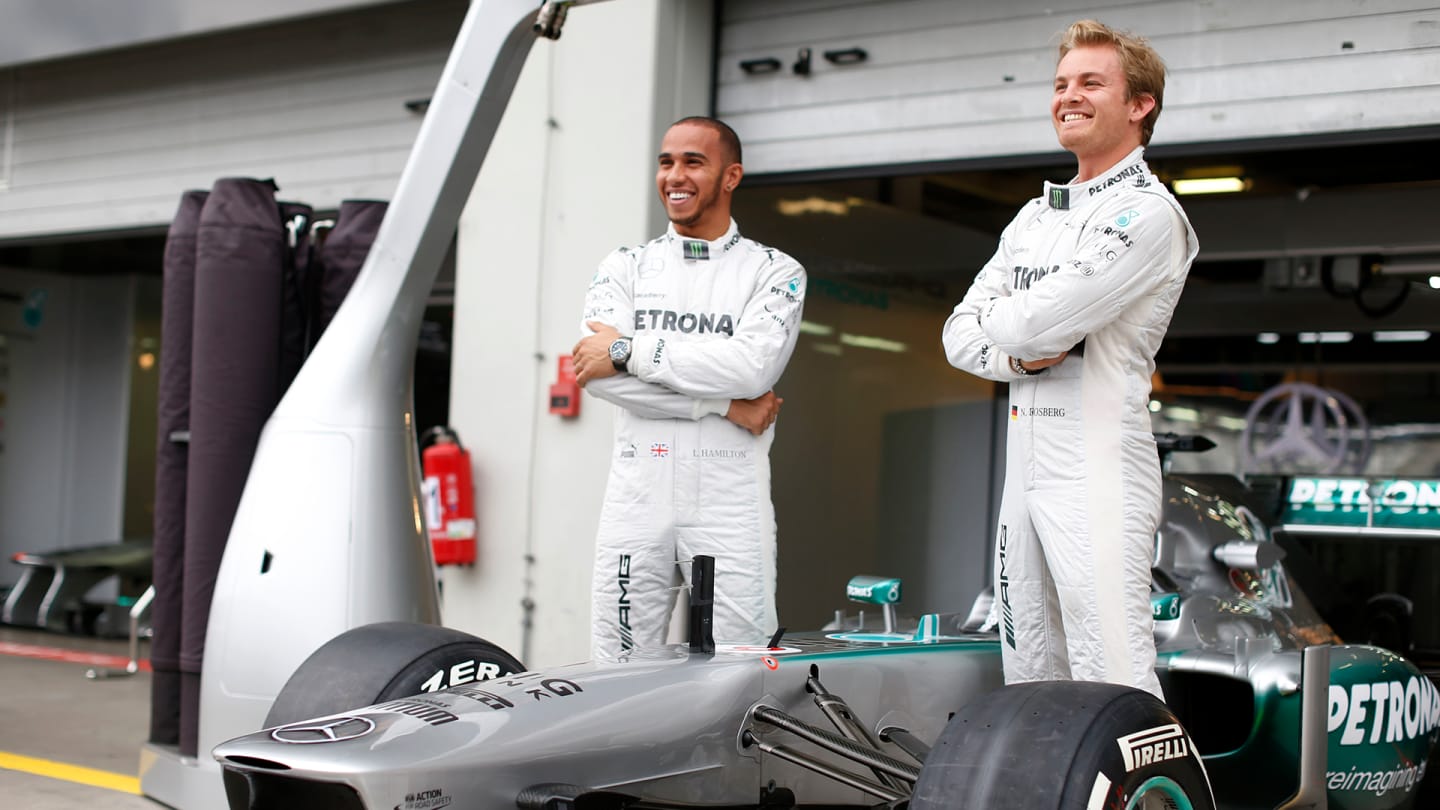
Rosberg and Hamilton were team mates at Mercedes from 2013 through 2016
The quest for every hundredth
Taking the first five rounds of last season – and only using Grand Prix and Sprint qualifying sessions where both Red Bull drivers’ efforts were uncompromised – Perez trailed Verstappen by just 0.099s when their lap times were combined.
Not only does it underline that Perez was very much in the ballpark in the early stages of the campaign, it also highlights the fine margins involved in F1 and how a few hundredths can make all the difference when it comes to building crucial momentum.
READ MORE: IndyCar star James Hinchcliffe picks out five F1 drivers who need to impress in 2024
Should Perez be able to find that form more often in 2024, avoid any dramatic drop-offs and better deal with Red Bull’s flow of upgrades, other factors Rosberg opened up about during his conversation with Tom Clarkson could become more relevant.
The first example he provided centred around some clever fitness work and weight-saving.
Heading into the 2016 summer break 19 points behind Hamilton, a reflective Rosberg decided to give up cycling in a bid to shave off some muscle and in turn shed some weight – all while being careful not to affect his abilities behind the wheel.
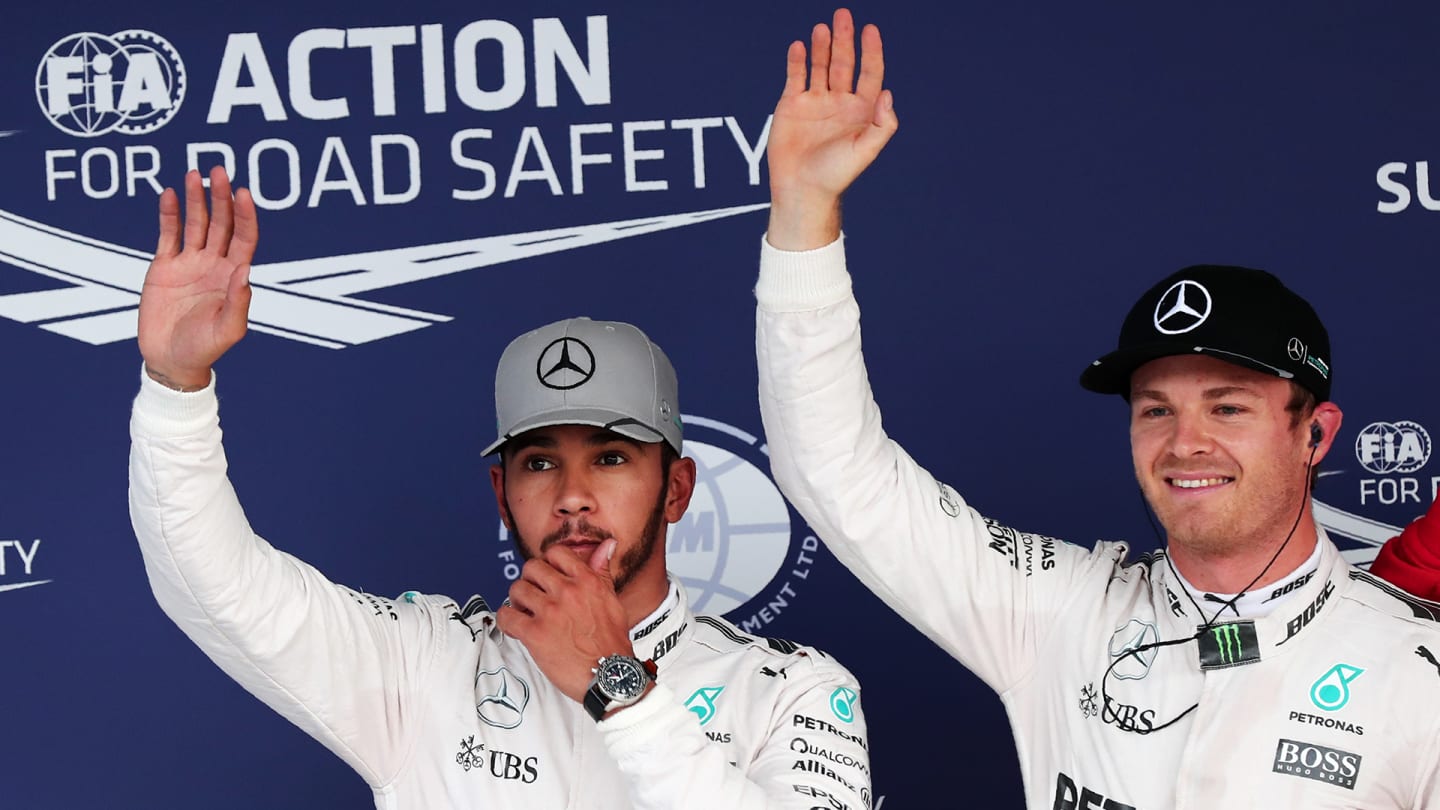
Rosberg’s pole at Suzuka in 2016, and the effort behind it, proved crucial in the title race
After the one-month holiday, the German and his trimmed legs meant business, winning in Belgium, Italy and Singapore, and again in Japan after sealing pole position at Suzuka by a tiny margin of 0.013 seconds that proved his unusual efforts were paying off.
“We were overweight with the car, so our bodyweight really mattered,” Rosberg explained. “You can’t go on a diet in the middle of the season because it just destroys you mentally – it kills you.
WATCH: All the key moments as the fierce Hamilton vs Rosberg rivalry unfolded
“The only solution was, [and] I thought of it myself, ‘Let’s lose some leg muscles’. I stopped cycling, then after the summer break we went to Suzuka and I was on pole by two hundredths of a second, and one kilo of the leg muscles which I lost is worth three hundredths of a second per lap.
“I won the race and that really messed [with] Lewis’ head a little bit on that weekend there. This was a really decisive step towards [winning] the championship.”
While an F1 driver weight limit was introduced in 2019 to ensure parity between F1’s heaviest and lightest drivers, and therefore reduces the impact Perez can make in this regard, it shows the extreme lengths Rosberg went to in a bid to land marginal gains.
Onboard pole position lap - Nico Rosberg, Japan 2016
Leaving no stone (or glove) unturned
But it did not stop there.
As touched on earlier, Rosberg reviewed every single element that contributed to his performance and set about making any improvement possible in a bid to bridge the gap to Hamilton – and then edge ahead.
BEYOND THE GRID: Nico Rosberg on how to beat Hamilton, F1 retirement and more
In addition to these changes bringing tangible rewards in terms of lap time and Rosberg’s comfort in the cockpit, he claims it started to put questions in his team mate’s head, meaning the physical steps were coupled with a mental impact.
“Another big one from that year was the gloves,” Rosberg continued, when asked to give another example of the marginal performance gains he was seeking.
“I worked on my gloves to remove any kind of seams or any kind of patches that were between my finger and the clutch paddle, to really get the best possible feel and make it as thin as possible.
“Going away from the way the standard [production] for my glove was done, to making it custom made just for myself, the way the clutch finger – just the finger – was modelled, that was a huge help for me.
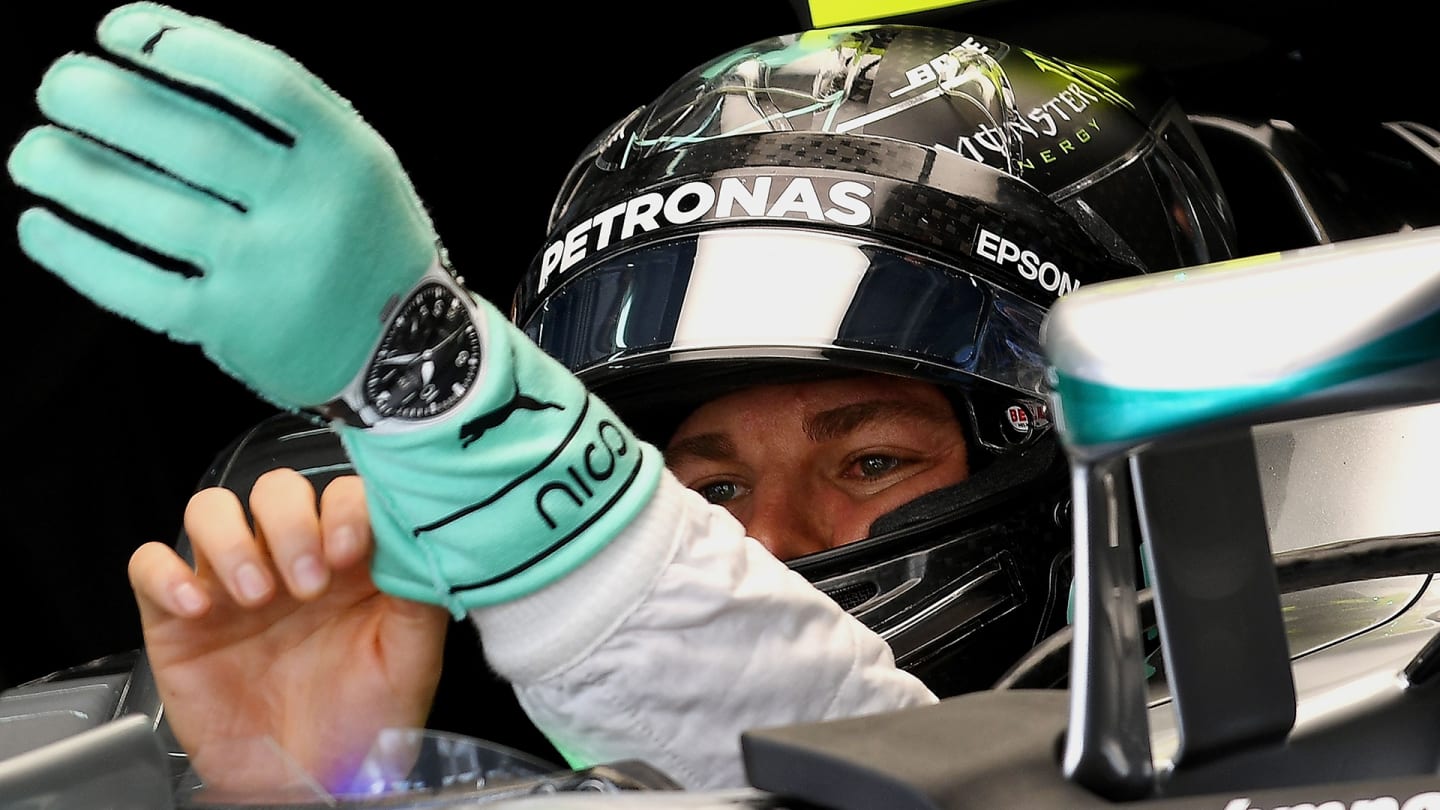
Even Rosberg’s gloves came under the microscope during the 2016 season
“I had a string of like four or five races where I nailed the starts and Lewis was wondering what the hell was going on, ‘Why’s he doing starts so well?’, then he took over that glove design as well.”
Maximising mental strength
While the aforementioned knock-on effects of these changes all played their part, Rosberg took the mental side as a whole – and controlling his own mind – very seriously.
READ MORE: All in the mind – Uncovering the mental tools drivers use to win in F1
He described it as a “fun topic” to delve into, having worked with a psychologist for “many, many years”, including in 2016 when his weeks were filled with regular two-hour sessions.
“[I was] learning about myself, learning how to approach life, learning how to cope with emotions that come,” he said of what was covered during the discussions.
“You can’t switch off emotions when they come, but if you understand them, why they are there, you can react much better and much more appropriately.”
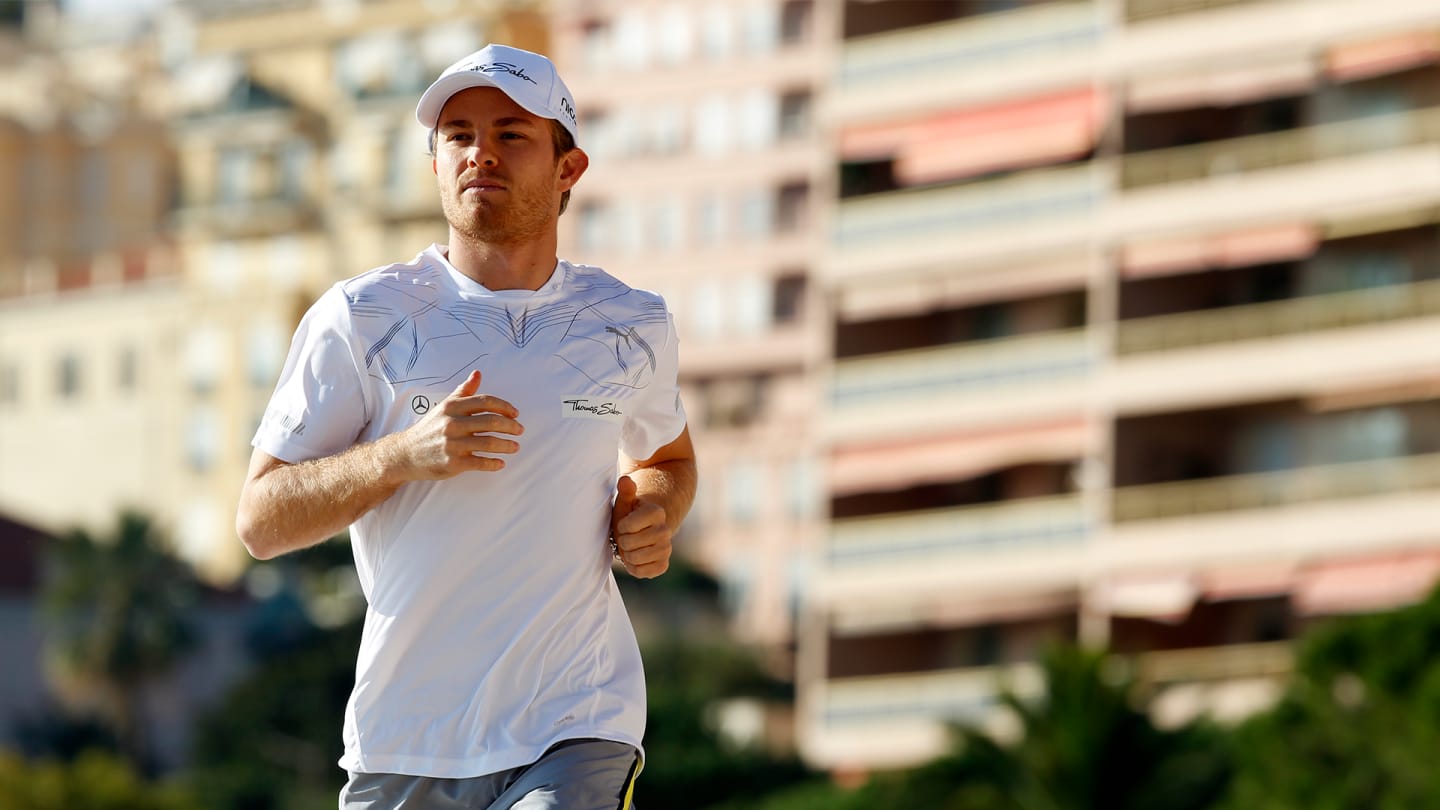
Rosberg did all he could to maximise his physical and mental performance
Rosberg added that this had “a huge snowball effect” on his life and career, before joking it applied “everywhere except the last four laps in Abu Dhabi”, where he did just enough to beat Hamilton to the title.
It’s something Perez appears to have adopted as well, revealing in a recent interview with Dutch newspaper De Limburger that he sought help from a mental coach amid his 2023 struggles with a view to becoming “the best version of myself” as a person and driver.
WATCH: How Norris and Perez have gained – and lost – from their braking styles
Feeling as fresh as possible
This mental clarity will be even more important in 2024, given that F1 is set to stage a record-breaking 24 Grands Prix – bringing plenty of travel to different time zones and the perennial challenge of jet lag.
F1’s calendar was already a busy one back in 2016, with 21 races staged at that time, and Rosberg’s desire to be leading the way on the track and away from it saw him reach out to a Harvard sleep doctor for advice.
Explaining how he updated his routine, Rosberg said: “If you go to Australia, you start five days before, [shifting your sleep by] one-and-a-half hours, and by the time you get to the last day, you’re seven-and-a-half hours in.
Like father like son: Nico Rosberg makes F1 history
“I would get up at one o’clock in the morning on the last day, or vice versa, whatever, some crazy time of the day. My wife would look at me and say, ‘Are you completely nuts now? Have you lost your mind?’
“At 3:30, 4am, I would be out there in Monaco running. Then [I would] take the flight, land and again, when you get there, one-and-a-half hour steps – don’t completely straight away adjust to the time.”
IN NUMBERS: How Verstappen compares to other F1 greats at this stage of his career
Rosberg said he completed the season without once feeling the effects of jet lag and, having previously “really struggled” to fall asleep while touring the globe, described it as “a revolution for my life”.
Finding the work/life balance
Amid all these physical and mental efforts, you could be forgiven for thinking that Rosberg had no time left to do anything else.
But he made clear that switching off and relaxing is just as important, creating a “perfect balance” that brings optimum happiness in life and optimum performance at work.
“I have learned that better life equals better performance,” he said. “This is actually one of the slogans from our late F1 doctor, Aki Hintsa, which is something that he was always preaching.
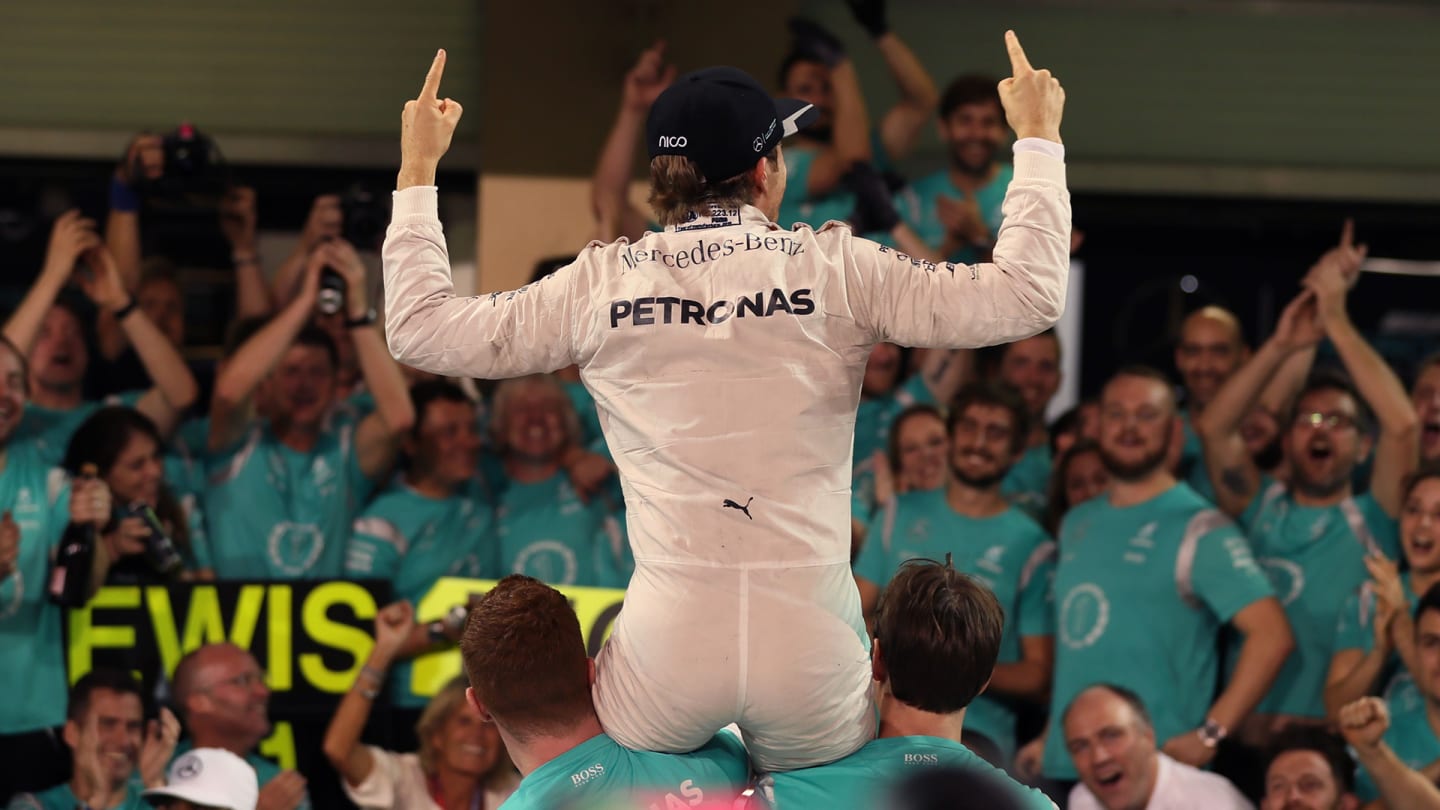
After a massive effort, Rosberg ended the 2016 season on top of the world
“I’ve really learned to understand that and that’s what I really focused on in my championship-winning year, to get the balance absolutely perfect in life.
“You really work hard sometimes, but make sure you have the time to recover, mentally as well, with the family, friends, taking it easy, just chilling out, all these things. I really got it so well nailed for that last year.”
READ MORE: Prost vs Senna, Mansell vs Piquet and more – F1’s fiercest team mate rivalries
There were, of course, contentious moments and incidents along the way which all played their part (including that Spanish Grand Prix clash), while Hamilton suffered a particularly costly late-season engine failure in Malaysia, but there’s no doubting the steps Rosberg made in the areas listed above to put the pressure on and ultimately turn the tables.
It was a monumental effort that pushed him to peak performance, both physically and mentally, and produced a version of himself that he felt could not be topped – prompting his bold call to retire at the end of the 2016 season.
Heading into what will be a crucial year for Perez and his F1 future, only time will tell if he has what it takes to emulate Rosberg and give his world-beating team mate something to think about.
YOU MIGHT ALSO LIKE
News ‘I feel really lucky’ – Antonelli expands on what it’s like working with race engineer ‘Bono’
News Formula 2 racer Victor Martins joins Williams Driver Academy
News EA Sports reveal first look at F1 25 as updates and bonus content for Iconic Edition announced
OpinionF1 Unlocked JACQUES: Tsunoda’s Red Bull promotion is a deserved reward – but Lawson needs to take inspiration from Gasly and Albon
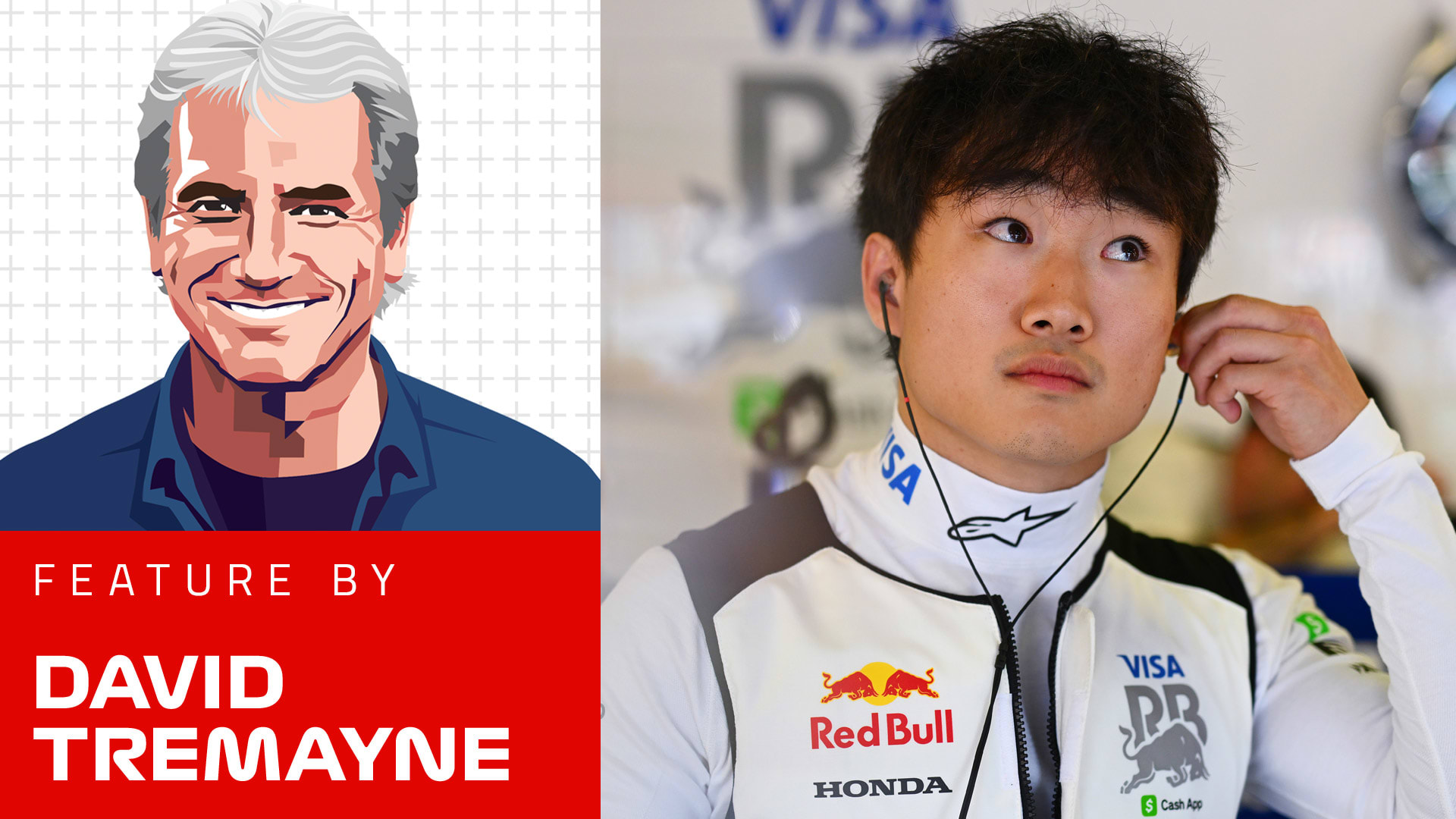
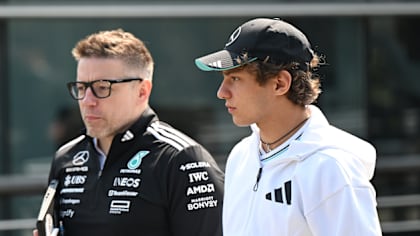
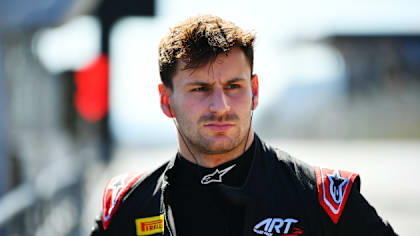
/EAS_F1_25_ICONIC_ED_3840x2160_StandingPose%20(1))
